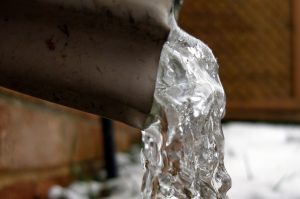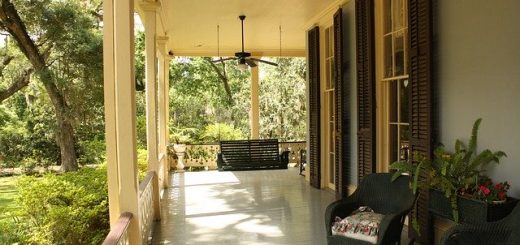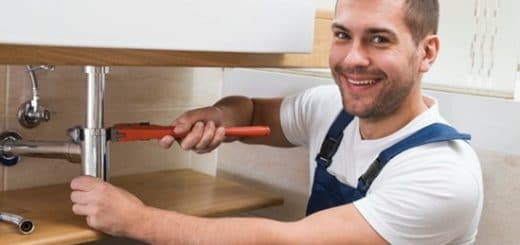How to Prevent Frozen Pipes in Your Apartment
As winter arrives, bringing its beautiful snowy landscapes and cozy vibes, it’s important to watch out for frozen pipes. These might seem like a small issue, but if ignored, they can turn into a costly problem with repairs and restorationRestoration is the process of returning a property to its pr... More. In this blog, we’ll look at why pipes freeze, what could happen, and most importantly, how to prevent it from causing trouble in your apartment.
How Do Pipes Freeze and Burst?
The story of frozen pipes bursting is like a chain reaction of problems. First, the water inside freezes and swells, causing the pipes to stretch beyond their usual capacity. It’s like a slow but steady pressure build-up, all thanks to the ice doing its thing. With this mounting pressure, the pipes face a real challenge – they’re holding on, but it’s only a matter of time. Eventually, when the pressure becomes too much, the pipes give in and burst. That’s when we find ourselves dealing with water everywhere and the potential for a major mess.
So, the key is to deal with frozen pipes right away, stopping the pressure before it causes leaks and water damage.
How Can I Prevent Frozen Pipes?
Keeping your plumbing safe from freezing in cold weather is vital to prevent potential damage and inconvenience. Here are some practical steps to help ensure the safety of your pipes:
- Open Cabinets: Allow warm air from your home to reach pipes by keeping cabinets under sinks open. This simple step ensures that pipes, especially those along exterior walls, receive ample warmth, reducing the risk of freezing.
- Adjust the ThermostatA thermostat is a device that monitors and regulates tempera... More: Maintain a consistent temperature in your home by keeping your thermostatA thermostat is a device that monitors and regulates tempera... More set at the same level day and night. This practice helps prevent sudden temperature drops that could leadLead is a heavy metal that can be toxic to humans, especiall... More to frozen pipes.
- Apply Heat: When leaving your home for an extended period, keep the heating system on. This ensures that the ambient warmth permeates through the living space, protecting your water pipes from freezing temperatures.
- Disconnect Outside Hoses from Faucets: Before winter arrives, disconnect and store any garden hoses. Consider installing frost-free hose bibs to prevent freezing temperatures from damaging outdoor hose pipes or fittings.
- Drain Sprinkler System: Protect your sprinkler system from freezing by draining it before winter. Leftover water in the system can freeze and expand, potentially causing damage. Regular maintenanceMaintenance is the routine care, inspection, and repair of a... More, including draining, is essential for preserving your sprinklers.
- Insulate Pipes in Unheated Areas: Pipes located in unheated areas, such as basements, crawl spaces, or attics, are more vulnerable to freezing. Insulate these pipes with foam or fiberglass sleeves to provide an additional layer of protection against the cold.
- Close Garage Doors: If your garage contains water pipes, ensure that garage doors are kept closed during extremely cold weather. This helps retain heat and prevents pipes from freezing, reducing the risk of damage.
What To Do When Dealing with Frozen Pipes in Your Apartment?
- Notify MaintenanceMaintenance is the routine care, inspection, and repair of a... More or Landlord: Immediately inform your apartment maintenanceMaintenance is the routine care, inspection, and repair of a... More or landlord about the presence of frozen pipes. They likely have established procedures for handling such situations and can provide assistance.
- Turn Off the Water Supply: Locate the primary water shut-off valve for your apartment and turn it off. This precautionary measure will halt water flow, preventing potential floodingFlooding is the overflow or accumulation of water in areas t... More in case the pipes burst.
- Open Faucets to Relieve Pressure: Open the faucets connected to the frozen pipes. This helps release built-up pressure in the system, reducing the risk of pipe damage.
- Thaw Pipes Safely: If you are comfortable doing so and can identify the frozen pipe location, attempt to thaw them. Utilize a hairdryer, heat lamp, or portable space heater to gently apply heat to the affected area. Avoid using open flames or high-heat sources to prevent fire hazards.
- Insulate with Towels or Blankets: Wrap towels or blankets around the frozen pipes to provide insulationInsulation is a material used in buildings to reduce the tra... More and retain heat, aiding in the thawing process.
- Inform Neighbors: In cases where multiple units are affected, communicate with your neighbors and encourage them to report the issue to maintenanceMaintenance is the routine care, inspection, and repair of a... More or the landlord. Collective awareness can expedite the resolution process.
- Implement Preventive Measures: To mitigateTo mitigate is to reduce or limit the severity of damage, ri... More the risk of future incidents, consider preventive measures like insulating pipes, especially those in unheated areas. During extremely cold weather, allow faucets to drip slightly to maintain water flow and prevent freezing.
Water Damage Cleanup and Restoration
While diligently following the tips mentioned can reduce the risk of frozen pipes, it doesn’t guarantee immunity in extremely cold weather.
If a pipe bursts, act quickly. Turn off the water supply, open faucets to release pressure, and get professional help. A plumber can fix the pipe, and a water damage restorationWater damage restoration is the professional process of clea... More expert can handle the aftermath.
When faced with the aftermath of a frozen pipe burst, don’t hesitate to reach out to RestorationMaster for professional water damage cleanup and restorationRestoration is the process of returning a property to its pr... More. Our skilled team recognizes the urgency of the situation and is quick to respond.













